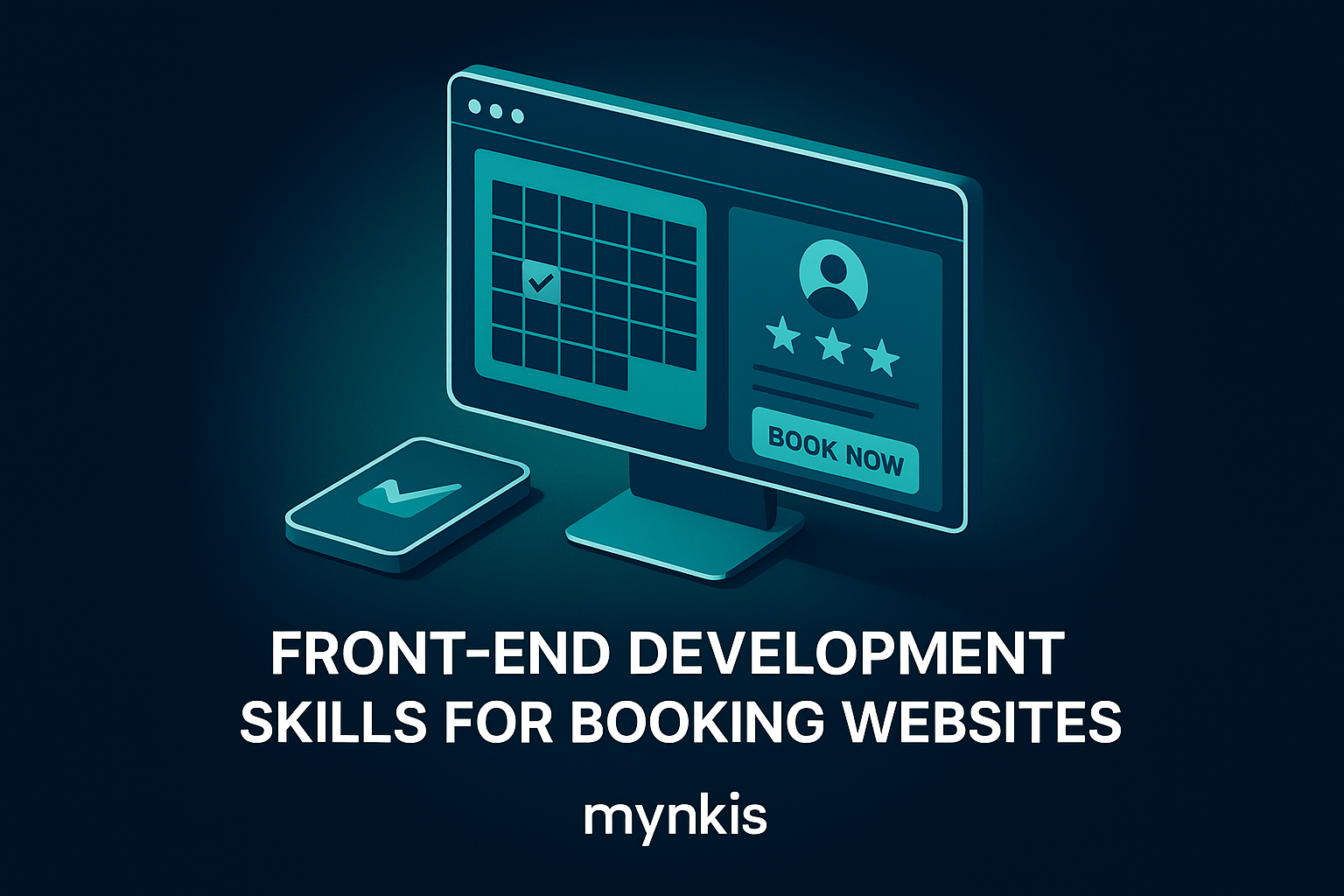Schedule a Demo
Front-end development is an art that directly influences your booking website's user experience and conversion rates. To thrive, one must possess a versatile skill set, blending design intuition with technical finesse. My experience consulting with various enterprise leaders revealed how essential it is to weave this skill into your digital fabric.
Responsive design isn't just a buzzword; it's critical. As users traverse the digital landscape on myriad devices, adaptability ensures your booking platform is accessible to all. I've worked with clients who scaled their businesses significantly by leveraging responsive designs, ensuring their sites stood out and improved user retention and conversion rates.
For a booking website, specific responsive design focuses should include seamless adaptation of booking forms and schedules. You need to guarantee that, regardless of the device, from a mobile phone during a commute to a desktop in an office, the booking process remains consistent and user-friendly.
JavaScript reigns supreme when it comes to creating dynamic, interactive web experiences. Envision how captivating interactive date pickers or real-time availability checks can transform your booking interface. In my engagements, I've helped clients enhance their conversion funnel by implementing advanced JavaScript functionalities that keep users engaged and facilitate a smoother journey to booking.
Utilizing libraries like React can drastically streamline the development process while increasing performance. An enterprise-level booking site thrives on fluidity; integrating such tech stacks can boost both the aesthetics and functionality of your platform.
UX/UI design is pivotal. It's not enough to make a site look pretty; its usability drives conversions. I recall a project where reworking the entire navigation structure of a booking portal based on user feedback drove up bookings by 25%. Attractive and user-centric design ensures potential customers are more inclined to finalize their reservations.
Colors, typography, and white space play a role in guiding user actions. Strategic placement of 'Book Now' buttons and prominent display of key information cater to both aesthetics and sales objectives. Your design should not only follow industry best practices but should also evolve based on continuous user data analysis.
SEO and front-end development are intertwined. Techniques such as optimizing image sizes, leveraging semantic HTML, and ensuring fast load times directly influence your organic search rankings. In my collaborative efforts with SEO specialists, I observed how fine-tuning these elements led to enhanced search visibility, directly impacting the traffic and, ultimately, bookings on sites.
Structured data usage, like schema markup, can assist in presenting richer snippets in search results, increasing the likelihood of clicks and subsequent conversions. SEO isn't an afterthought; it's a front-end skillset crucial to ensuring your users not only reach your site but find your booking services compelling enough to use.
Accessibility in web design goes beyond compliance; it's about broadening your audience. Having worked across various sectors, it's evident that accessible sites generally enjoy better engagement. Incorporating practices such as keyboard navigation, ARIA labels, and alt text enhances the booking experience for all users, pushing toward better conversion rates.
Sound accessibility practices aren't just great for users; they align with legal requirements and improve overall user satisfaction—ensuring more users complete their booking journeys effectively.
A stellar front-end relies on performance optimization. Ever felt the frustration of leaving a site due to slow load times? I have, too, and I've witnessed how performance optimization has revived client projects from sluggish to snappy. From compressing images to efficient coding practices, every second counts in retaining potential bookers.
Leveraging tools to analyze and tweak performance metrics isn't just a one-time deal; it's a practice that needs continuous attention. Regular audits followed by swift implementation of the findings ensure that your site remains a high-performer in conversion.
The front-end realm evolves ceaselessly. For leaders at the enterprise level, staying abreast of new technologies isn’t merely advisable; it’s essential. Consider how the implementation of progressive web apps or serverless architectures could bolster your site's performance and allure—insights that have garnered positive reactions in projects I’ve guided through their evolution.
Empowering your development team with continuous learning opportunities about frameworks like Vue.js or Next.js can propel your booking site's front-end closer to the pinnacle of user engagement and efficacy.
Finally, no amount of technical prowess can outshine effective teamwork. Based on available research, I've found that projects where developers, designers, and stakeholders are in sync typically result in smoother execution and better conversion outcomes. Clear communication channels fostering input from all sides create a harmonious path to a solid, user-converting booking platform.
Integrating front-end skill with a culture of communication and teamwork is non-negotiable. Agile methodologies and frequent sync-ups ensure that the focus on enhancing user experience directly correlates with increased bookings and, ultimately, the success of your enterprise.
